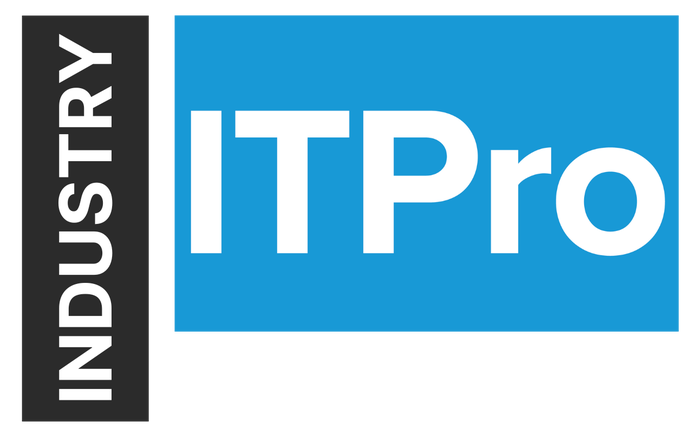
Insight and analysis on the information technology space from industry thought leaders.
The Financial Consequences of Inadequate Data GovernanceThe Financial Consequences of Inadequate Data Governance
Data governance is not just about compliance. It’s also a cornerstone for sustainable business growth in the competitive, data-driven business landscape.
October 25, 2023

Data governance is the structured management of data assets within an organization, encompassing everything from data quality and security to usage policies. In today's digital landscape, where data is often considered the "new oil," effective data governance is crucial for maximizing the value of data while minimizing risks.
The objective of this article is to shed light on the hidden financial burdens that poor data governance can impose on organizations. While the importance of data governance is widely acknowledged, the financial implications of neglecting this critical aspect are often overlooked.
1. The Regulatory Landscape
Compliance frameworks like GDPR, CCPA, and HIPAA have been established to protect consumer data and ensure its ethical use. These frameworks set the rules for how data should be handled, stored, and shared.
Regulatory bodies enforce these frameworks, often imposing hefty fines on organizations that fail to comply. These agencies have the authority to audit companies and assess penalties for violations, making compliance a top priority for businesses.
Companies such as British Airways and Marriott have faced multimillion dollar fines for failing to comply with data protection laws. These fines can significantly impact an organization's bottom line, leading to lost revenue and diminished shareholder value.
The reputational damage from these fines can be long-lasting, affecting customer trust and market position. This makes it imperative for organizations to invest in robust data governance frameworks to avoid such penalties.
2. Inefficiency in Data Management
Manual data handling and redundant data storage are resource-intensive activities that can drain an organization's finances. These inefficiencies often result from a lack of centralized data management systems or outdated technology.
Case studies from various industries illustrate how these inefficiencies can lead to wasted resources, including both time and money. Companies that fail to modernize their data management systems risk falling behind in the competitive landscape.
Poor data management not only wastes resources but also represents a missed opportunity for growth and innovation. Companies could be investing these resources into research and development or other strategic initiatives.
The time and manpower spent on inefficient processes could be better utilized in strategic initiatives that drive business value. When quantified, these opportunity costs can be staggering, further emphasizing the need for efficient data governance.
3. Productivity Losses
Low-quality data can severely impact decision-making and operational efficiency. Inaccurate or incomplete data can lead to flawed strategies, missed opportunities, and ultimately, financial losses.
A sales team relying on outdated customer information could waste time on leads that have already been converted or are no longer relevant, leading to lost sales opportunities and financial losses. Similarly, a marketing team using incorrect customer segmentation data could end up targeting the wrong audience, wasting advertising budget, and missing revenue targets.
These real-world scenarios further illustrate the cost of poor data quality. The examples highlight the tangible impact of data quality issues on an organization's bottom line.
Employee frustration due to poor data governance can lead to decreased morale and productivity. When staff members are forced to work with unreliable or inaccessible data, their job satisfaction suffers.
The long-term impact on an organization's culture and talent retention can be substantial. High turnover rates and low employee engagement can be the outcome, with HR spending more time and resources on recruitment and training, further exacerbating the hidden costs of poor data governance.
4. Security Risks and Data Breaches
Data breaches can have devastating financial consequences for organizations. The direct costs include legal fees, fines, and customer compensation, which can run into millions of dollars.
Indirect costs, such as reputational damage and loss of business, can be even more damaging in the long run. Companies like Equifax and Capital One have suffered severe financial repercussions due to data breaches, serving as cautionary tales for other organizations.
Investing in robust security measures and strong data access controls is not just a compliance requirement but also a financially prudent decision. A strong security posture can help organizations avoid the crippling costs associated with data breaches.
Implementing multi-layered security protocols can significantly reduce the risk of a data breach. The return on investment for these cybersecurity measures can be substantial, especially when considering the potential costs of a breach.
5. The Imperative for Robust Data Governance
The hidden costs of poor data governance — ranging from regulatory fines and inefficiencies to productivity losses and security risks — can accumulate to a significant financial burden. These costs can be both direct and indirect, affecting various aspects of business operations.
Making a strong business case for investing in robust data governance is not just about compliance; it's about financial sustainability. Companies that prioritize data governance are better positioned to compete in today's data-driven landscape.
Improving data governance is not a one-time effort but requires ongoing commitment and investment. Organizations can start by conducting a thorough audit of their current data governance practices to identify areas for improvement.
A checklist or roadmap can guide organizations in implementing effective data governance protocols. Expert recommendations, tailored for IT professionals and technology stakeholders, can provide valuable insights for achieving governance excellence.
The checklist might look something like this:
Data audit: Assess the current state of data quality and compliance.
Policy development: Create or update data governance policies.
Training: Educate employees on data governance best practices.
Technology upgrade: Invest in tools for better data management and security.
Monitoring: Regularly review data quality and compliance metrics.
Feedback loop: Establish channels for employees to report data issues.
Review and update: Periodically revisit the governance policies to keep them current.
Conclusion
In the intricate landscape of today's data-driven economy, the stakes are high and the margins for error are slim. The hidden costs of poor data governance, whether they manifest in regulatory fines, operational inefficiencies, or compromised security, can accumulate into a significant financial burden.
As we've explored, these aren't just abstract concepts but real-world challenges with measurable impacts on an organization's bottom line and its people. The imperative for robust data governance is as much a matter of compliance as it is a cornerstone for sustainable business innovation and growth.
Organizations that invest in effective data governance can avoid the hidden costs and risks, positioning themselves for success in the competitive, data-driven business landscape.
Ben is an experienced tech leader and book author with a background in endpoint security, analytics, and application and data security. Ben filled roles such as the CTO of Cynet, and director of threat research at Imperva. Ben is the chief scientist for Satori, the DataSecOps platform.
About the Author
You May Also Like








.jpg?width=700&auto=webp&quality=80&disable=upscale)
